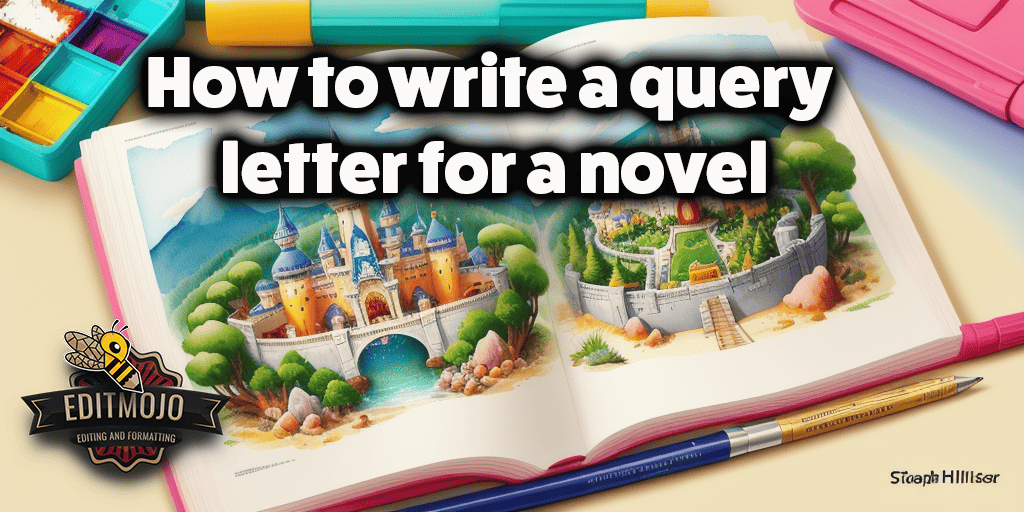How to write a query letter for a novel
How to write a query letter for a novel. Writing a query letter for a novel can be a daunting task. It’s the first step in getting your novel noticed by literary agents and publishers, and it’s crucial to make a good impression. This guide will walk you through the process, from understanding the basics of a query letter to crafting a compelling hook and synopsis, and finally, handling responses. With the right approach and a bit of persistence, you can write a query letter that stands out from the crowd.
Key Takeaways (How to write a query letter for a novel)
| Section | Key Points |
|---|---|
| Understanding the Basics | A query letter is a formal letter sent to literary agents to propose your book for representation. It typically includes a salutation, an introduction to your book, a mini-synopsis, and your bio. |
| Preparing to Write | Research potential agents and understand your genre and market before you start writing. |
| Writing the Query Letter | Start with a professional salutation, introduce your book, craft a compelling hook, provide a mini-synopsis, and share your bio. |
| Tips for Writing | Keep your letter professional, clear, and concise. Showcase your unique voice and style, and avoid common mistakes. |
| After Sending the Query Letter | Follow up appropriately and handle rejections and acceptances professionally. |
Understanding the Basics of a Query Letter
A query letter is your first contact with a literary agent or publisher. It’s a formal letter that proposes your book for representation or publication. The letter typically includes a salutation, an introduction to your book (including genre, title, and word count), a compelling hook, a mini-synopsis, and your bio.

Preparing to Write a Query Letter
Before you start writing, it’s essential to do your homework. Research potential agents or publishers to understand their preferences and submission guidelines. Also, familiarize yourself with your genre and market to ensure your book fits their needs. [^2^]
How to Write a Query Letter: Step-by-Step Guide
Writing the Salutation
Start your letter with a professional salutation. Address the agent or publisher directly, using their name if possible.
Introducing Your Book
Next, introduce your book. Include the genre, title, and word count. This gives the agent or publisher a quick overview of your project.
Crafting the Hook
The hook is arguably the most critical part of your query letter. It’s a one- or two-sentence pitch that grabs the reader’s attention and makes them want to know more about your book.
Providing a Mini-Synopsis
The mini-synopsis is a brief summary of your book. It should convey the main plot points and the emotional journey of your characters.
Sharing Your Bio and Relevant Information
Finally, share your bio and any relevant information. This could include your writing credentials, previous publications, or any other details that might make you stand out as a writer.

Tips for Writing an Effective Query Letter (How to write a query letter for a novel)
When writing your query letter, remember to keep it professional, clear, and concise. Showcase your unique voice and style, but avoid common mistakes like being overly verbose or using clichés. [^3^]

What to Do After Sending a Query Letter
After sending your query letter, it’s important to follow up appropriately. Handle rejections professionally and graciously, and if you receive an acceptance, respond promptly and professionally.
| Question | Answer |
|---|---|
| What is a query letter in the context of novel writing? | A query letter is a one-page letter sent to literary agents in an effort to get them interested in your novel. You have one page and 300 words (or less) to woo them. |
| What are the key components of a query letter for a novel? | A query letter typically includes a salutation, an introduction to your book (including genre, title, and word count), a compelling hook, a mini-synopsis, and your bio. |
| How should I structure the hook in my query letter? | The hook in your query letter should be a one- or two-sentence pitch that grabs the reader’s attention and makes them want to know more about your book. It should convey the unique premise or concept of your book in an engaging way. |
| How should I handle rejections from my query letter? | Handle rejections professionally and graciously. Remember that rejection is a part of the publishing process, and it doesn’t necessarily reflect the quality of your work. Use it as a learning experience to improve your future query letters. |
| How long should I wait for a response after sending a query letter? | Response times can vary greatly, but generally, if you haven’t heard back within 3 months, it’s acceptable to send a polite follow-up email. However, always check the agent’s or publisher’s submission guidelines as they may specify their own response times. |
